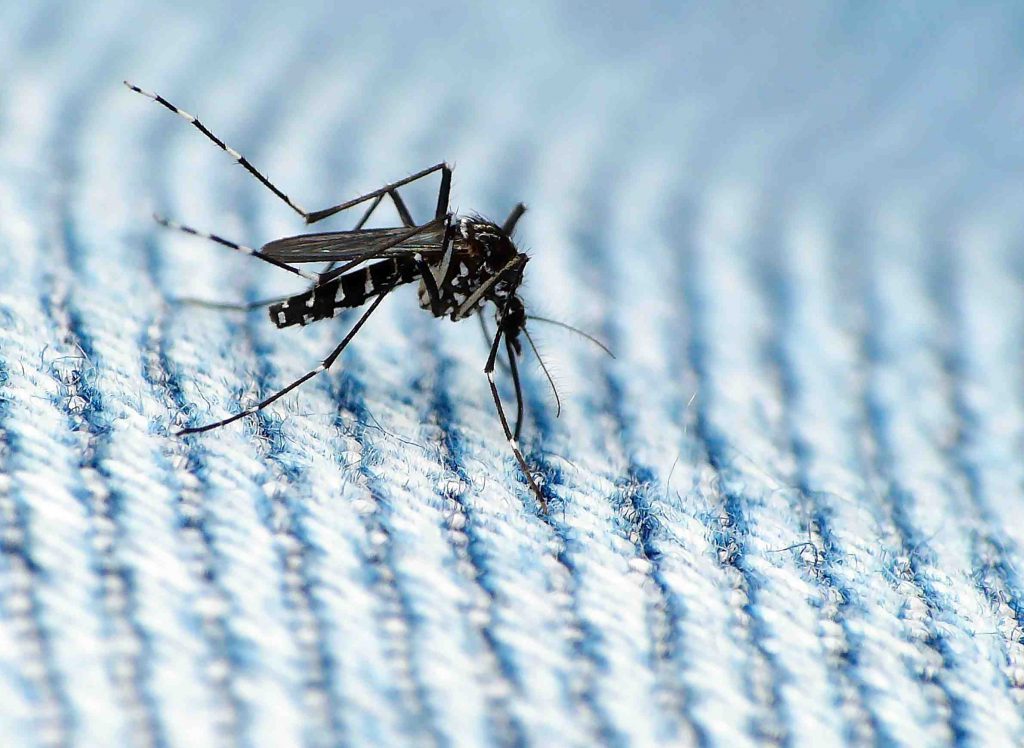First Human Case of West Nile Virus Reported in Wisconsin This Year
Health officials urge everyone to protect against mosquito bites
State and local health officials are advising residents to continue to protect themselves against mosquito bites due to the state’s first human case of West Nile virus (WNV) this year. A resident of Dane County is the first person confirmed infected with the virus in the state in 2018.
The majority of WNV human cases in the state occur during the months of August and September. However, the risk of contracting WNV and other mosquito-borne illnesses is present anytime mosquitoes are active, so it is important for people to be vigilant about preventing mosquito bites throughout the summer and early fall.
In 2017, 51 human cases of WNV were reported in Wisconsin, the highest number since 2012. Eight of these cases occurred in Dane County, which was the highest number ever reported in the county.
There is no specific treatment for West Nile virus other than to treat symptoms. If you think you have West Nile virus infection, contact your healthcare provider.
WNV is spread to people through the bite of an infected mosquito and is not transmitted person to person. Although few mosquitoes actually carry the virus, there a several things you can do to minimize your exposure and eliminate breeding grounds for mosquitoes. The Wisconsin Department of Health Services (DHS) and Public Health Madison & Dane County recommend the following:
- Limit time spent outside at dawn and dusk, when mosquitoes are most active.
- Apply an insect repellant with DEET, IR3535, picaridin, or oil of lemon eucalyptus to exposed skin and clothing.
- Make sure window and door screens are in good repair to prevent mosquito entry.
- Prevent mosquitoes from breeding by removing stagnant water from items around your property, such as tin cans, plastic containers, flower pots, discarded tires, roof gutters, and downspouts.
- Turn over wheelbarrows, wading pools, boats, and canoes when not in use.
- Change the water in bird baths and pet dishes at least every three days.Clean and chlorinate swimming pools, outdoor saunas, and hot tubs; drain water from pool covers.
- Landscape to prevent water from pooling in low-lying areas, and trim tall grass, weeds, and vines since mosquitoes use these areas to rest during hot daylight hours.
DHS has monitored the spread of West Nile virus since 2001 among wild birds, horses, mosquitoes, and people. During 2002, the state documented its first human infections and 52 cases were reported that year. West Nile virus infections in humans have been reported from June through October.
The Wisconsin Division of Public Health will continue surveillance for West Nile virus until the end of the mosquito season.
NOTE: This press release was submitted to Urban Milwaukee and was not written by an Urban Milwaukee writer. While it is believed to be reliable, Urban Milwaukee does not guarantee its accuracy or completeness.
Mentioned in This Press Release
Recent Press Releases by Wisconsin Department of Health Services
DHS Highlights Impact of Federal SNAP Changes on Wisconsinites
May 22nd, 2025 by Wisconsin Department of Health ServicesProposed changes to SNAP will cost taxpayers $314 million per year and put 90,000 people at risk of losing benefits
DHS Campaign Increases Awareness of Wisconsin’s Aging and Disability Resource Centers
May 15th, 2025 by Wisconsin Department of Health ServicesNew toll-free phone hotline and resource directory make finding resources and services easier statewide























